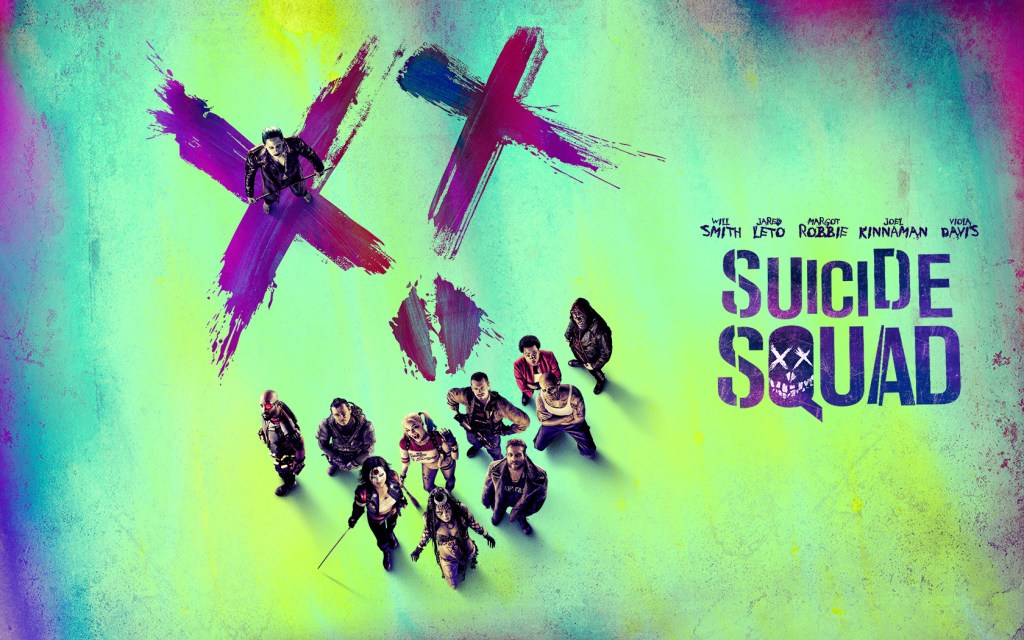A mess in every possible way (e.g., bad acting; a bad script; unnecessary and oddly placed flashbacks; clichés galore; boundless stereotypes; abuse positive storytelling; sexism; and misogyny), Suicide Squad is a star packed film that is all about a bunch of bad guys who are forced to band together to fight an even bigger bad guy (or in this case, a “bad woman” and her brother). What could possibly go wrong, right?
The Bechdel, Russo, and Race Test
Suicide Squad passes the race test but it does not pass the Bechdel or Russo test.

A good chunk of Suicide Squad’s main cast is non-White (e.g., Deadshot [Will Smith], Amanda Waller [Viola Davis], Katana [Karen Fukuhara] and Diablo [Jay Hernandez]) and because there are many instances where some of the non-White individuals that are in the film talk to each other and do so without mentioning anyone White, Suicide Squad easily passes the race test. However, lest you think that Suicide Squad passing a race test is a sign of Armageddon and that DC films are actually turning a new leaf when it comes to diversity, it should be made known that the film does not pass two of the most basic of diversity tests – the Bechdel and Russo.

There are several prominent named female characters in Suicide Squad (Waller, Katana, Harley Quinn [Margot Robbie] and June Moone [Cara Delevingne]), yet women hardly ever talk to each other (never a good sign). In fact, there is only one actual instance where two women converse with one another (e.g., Harley and Enchantress discuss the Joker) and while the two women in this instance have names, the film ultimately fails to pass the Bechdel test because men are mentioned in their conversation.
As to why Suicide Squad does not pass the Russo test, none of the characters are ever identified as LGBTI.
*The Bechdel test entails three requirements:
1. It has to have at least two (named) women in it
2. Who talk to each other
3. About something besides a man
*The Vito Russo test entails three requirements:
1. The film contains a character that is identifiably lesbian, gay, bisexual, intersex and/or transgender
2. The character must not be solely or predominately defined by her sexual orientation, gender identity and/or as being intersex
3.The character must be tied into the plot in such a way that her removal would have a significant effect
***The race or people of color (POC) test has three requirements:
1. It has two people of color in it
2. Who talk to each other
3. About something other than a White person
****Just because a film passes the Bechdel, Russo and race test does not mean that it is not sexist, heterosexist, racist and/or cissexist, etc. The Bechdel, Russo and race test is only a bare minimum qualifier for the representation of LGBTI individuals, women and people of color in film. The failure to pass these tests also does not identify whether the central character was a woman, a person of color or a LGBTQI individual and it does not dictate the quality of the film.

